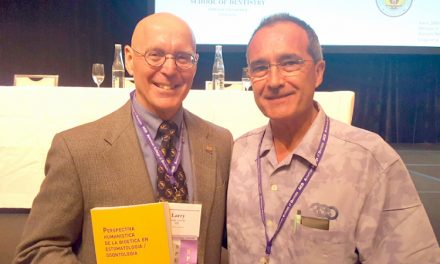Cecilia Kindelán, member of the Institute of International Cooperation, reflected on the 2nd Interdisciplinary Congress of RAED on positive language

Dr. Cecilia Kindelán
Cecilia Kindelán, doctor in Communication and member of the Institute of International Cooperation of the Royal European Academy of Doctors-Barcelona 1914 (RAED), presented at the 2nd Interdisciplinary Congress of RAED, held on 15-17 February at the Spa Hotel Vichy Catalán, in Caldes de Malavella (Girona), the presentation “El lenguaje positivo: el efecto de las palabras que elegimos” (Positive language: the effect of the words we choose), in which she explained clearly and succinctly how the brain, body and language act as communicating vessels to provide the mechanisms that increase physical and emotional well-being.
Kindelán described the conclusions reached by the epidemiologist David Snowdon after conducting a study on the incidence of Alzheimer’s in a convent in Minnesota three decades ago. The scholar certified that positive emotional state in the early stages of life can contribute to live longer and that the use of positive words isn’t only related to happiness and success, but also to longevity.
 Another experiment collected by Kindelán that demonstrates the influence of words in action is the so-called “Florida effect” of John Bargh, in which young people who listen to positive words take less time to achieve their goals than those who hear negative words. This effect is described by the Nobel prizewinner in economics Daniel Kanheman in his work “Thinking, fast and slow” to mention the effect of priming: the influence of an idea in action without the individual being aware.
Another experiment collected by Kindelán that demonstrates the influence of words in action is the so-called “Florida effect” of John Bargh, in which young people who listen to positive words take less time to achieve their goals than those who hear negative words. This effect is described by the Nobel prizewinner in economics Daniel Kanheman in his work “Thinking, fast and slow” to mention the effect of priming: the influence of an idea in action without the individual being aware.
Kindelán also mentioned the recognized Spanish educator and consultant Luis Castellanos, who in his book “La ciencia del lenguaje positivo” (The science of positive language) indicates that training in the use of a positive language can induce plastic changes in the brain that can transform our cognitive, emotional and social styles.




